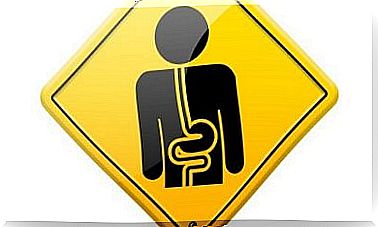8 Reasons Why You Could Feel Exhausted
Did you know that a sedentary lifestyle and lack of physical activity can be responsible for your fatigue? Thanks to exercise we increase our resistance and improve our cardiovascular health

The feeling of being tired or feeling exhausted can be the result of physical overexertion, illness, or an emotional problem. However, other factors may be influencing you without you noticing.
Feeling fatigued or with bodily ailments typical of tiredness can prevent us from carrying out normal daily activities. Although it is normal to suffer from it occasionally, it is better to pay close attention to it when it appears recurrently and accompanied by other discomforts.
To completely eradicate frequent episodes of this symptom, the possible causes that are triggering it must be known. Of course, if you can’t identify the cause and you keep feeling unwell, go to the doctor.
Are you feeling exhausted? Perhaps here is the cause:
1. Not drinking enough water
Being dehydrated is bad for the body. In fact, it is estimated that 2% dehydration already supposes a significant loss of energy for the body, which is why fatigue and weakness appear. The MedlinePlus Medical Encyclopedia explains some reasons why large amounts of water can be lost, and these are:
- Excessive sweating
- Fever
- Vomiting or diarrhea
- Urinate too much

The lack of water causes the volume of the blood to be reduced, making it thicker and reducing heart activity. By causing the heart to pump blood less efficiently, oxygen and nutrients take longer to reach the cells of the body, causing physical and mental weakness right there.
2. Thyroid problems
When tiredness and weakness is a thing of almost every day, it is advisable to consult the doctor to check the thyroid. The National Institutes of Health (NIH) page explains the following:
Thus, this gland located in the neck is responsible for regulating metabolism and secreting some important hormones for the functioning of the body. And when you develop a disorder or alteration, a series of symptoms are triggered that can decrease the quality of life if they are not controlled.
3. Lead a sedentary life
Some people might think that being physically active can make them feel more exhausted during the day, but it doesn’t. Through exercise, strength is regulated and resistance increases to improve muscle function and the cardiovascular system.
The regular practice of this habit optimizes the function of the heart and makes oxygen and nutrients reach the tissues of the body when it has to be.

4. Anemia
Anemia is a disease that is caused by the deficiency of hemoglobin, a substance rich in iron whose function is to carry oxygen from the lungs to other parts of the body. If the body does not get enough oxygen, muscles and cells weaken and chronic fatigue can develop.
5. Urinary infections
They usually present with symptoms such as fever, burning, and the urge to go to the bathroom. However, when not controlled in time, bacteria continue to proliferate and weaken the body’s immune response , eventually causing weakness.
6. Skip breakfast
Food plays a very important role in the general health of the body and, thanks to its nutrients, the body can stay active all day. Skipping this meal can cause physical and mental exhaustion despite eating meals in later hours.
7. Eat junk food frequently
Junk food is loaded with sugars, carbohydrates and saturated fats that all they do is wreak havoc on the body. By altering the glycemic index and increasing blood sugar levels, strong physical relapses occur that, sometimes, can only be treated with rest.
It is essential to keep sugar levels stable, not only to avoid fatigue, but also to avoid more serious diseases, such as type 2 diabetes.
8. Sleep apneas
Sleep apnea is a disorder that causes momentary interruptions in breathing while you are sleeping. Every time apnea occurs, the sleep cycle is disrupted, so there is a great chance of developing common symptoms such as exhaustion and irritability.
If none of these reasons seems to explain the frequent tiredness and it remains for more than six months without any improvement, it is very likely that it is a condition known as chronic fatigue. In such extreme cases, medical support should be sought, since special treatment and some professional evaluations are required.








